Acquisitions and capex are greasing the wheels of growth at oils and fats supplier KTC Edibles, which recently bought Scottish margarine specialist Cardowan Creameries and is in the process of buying Irish edible oils distributor Trilby from Greencore.

The Wednesbury-based business was itself acquired in May 2022 by private equity firm Endless, joining the likes of bakery behemoth Hovis, cake and dessert manufacturer Bright Blue Foods (BBF), and food-to-go specialist West Cornwall Pasty Company in the Endless portfolio.
The deal was spearheaded by Paresh Mehta who joined his formerly family-run firm in 1999. Starting off in exports, he tracked business growth and gained experience working in numerous departments before progressing to the position of general manager, commercial director and finally CEO.
Mehta describes the past 18 months as “very interesting” thanks to several challenges in the global supply chain, particularly the war in Ukraine, as well as considerable modernisation at KTC Edibles.
He sat down with British Baker to reveal more about these challenges and how KTC is overcoming them, its journey to becoming a powerhouse in the edible oils and fats sector, and the strategies in place for future business advancements.
An appetite for growth
“We’re here to grow, whether it’s organically or through acquisition,” he says. “If there’s anything of value in 2024, we would definitely be interested in acquiring it, whether that’s in the UK or in Europe.”
Bakery clients are estimated to account for around 10% of the group’s turnover, which is reportedly around the £550m to £600m mark. At its main site in Wednesbury near Birmingham, KTC packs retail oils and fats and also manufactures coconut flour using an onsite cryogenic mill. Its factory in Liverpool, meanwhile, is focussed on making catering oil.
Products supplied to bakers are mainly 12.5kg blocks of solid fat from Cardowan including sustainable palm oil and shortening, with the acquisition also allowing KTC to sell more margarine and pastry fats and across a wider reach nationally.
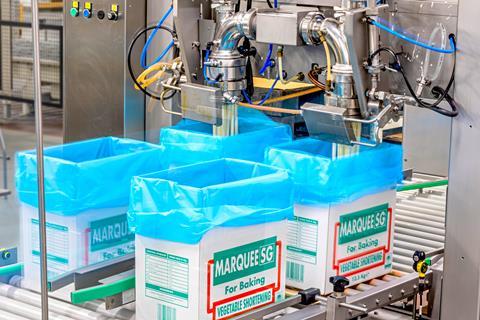
To further boost capacity at Cardowan, KTC announced in August that it was investing a seven-figure sum the Glasgow facility. It plans to double the site’s capacity and launch an expanded range of sustainable, speciality bakery fats to meet the evolving needs of bakeries and food manufacturers.
“The only reason we’ve managed to achieve such a good footprint of clients across the globe is through branding”
Further availability will come once the Trilby acquisition is completed, which Mehta expects to be within the next few weeks following clearance from the Competition Commission. He calls the company “specialists in technical logistics” and notes it’s more service led than KTC’s usual operations, “but it gives us a good footprint into Ireland for expansion and growth”.
Mehta estimates that KTC already supplies its products to 70 different countries worldwide – all over Europe, the US, and Canada, and as far away as Hong Kong. He notes this is somewhat remarkable because, generally, every country has its own refinery and its own supply of edible oils and fats. “The only reason we’ve managed to achieve such a good footprint of clients across the globe is through branding,” Mehta comments.
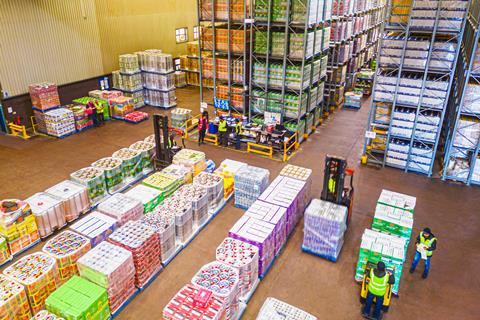
It’s not necessarily a straightforward export trade, with each market having its own specific product preferences according to the CEO. “In the US, there’s a massive influx of organics and all these weird and wonderful, exotic types of oils, but our market is totally different,” says Mehta, adding that there had been no major shifts in demand in the UK for certain types of oils and fats.
Despite people being relatively consistent in what they buy, there have been product “fads” for periods of time, with Mehta giving coconut oil as an example. “It exploded and you had every single brand under the sun coming into the UK, then a year later, only the ones that actually did well stayed,” he remembers, “but that’s an exception, that’s not the norm.”
Supply chain complications
Demand may be relatively stable, but the supply chain hasn’t been.
“I don’t think edible oils has been in the forefront of anyone’s mind as it has been over the last couple of years,” he says.
KTC’s biggest challenges recently have stemmed from the war in Ukraine, which has affected the global demand for all types of oils. Prior to that, Brexit and the pandemic placed constraints on the market but Mehta says seed availability and the flow of oils have since improved significantly of late.
Prices have inevitably gone due to supply chain disruptions, but Mehta insists “we didn’t let any customers down on the bakery side”. KTC’s customers are offered a so-called back-to-back contract, whereby they have security on pricing for a specified volume of product over an agreed period of time. Advice is also given as to the periods that are best to buy and for how long it should be for according to the required volume.
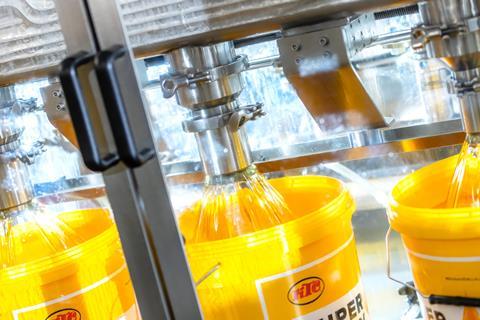
The availability risk is driven down by KTC’s size – it handles roughly 370,000 tonnes of oils and fats in total per year and currently has the capacity to increase this by a further 10%. “We’re such a large player, so all our eggs are not in one basket with one supply chain in the sense of we have a number of suppliers we can lean on,” comments Mehta.
Another advantage KTC holds over its competitors, according to Mehta, is the broadness of its product range and it supplies into all client channels, which makes it “almost a one-stop shop”.
The company’s huge bulk inputs mean it can always offer customers a competitive price, Mehta says. While there has been correction in edible oils over the past six months compared to the extreme highs of last year, Mehta thinks with soaring labour and energy costs it is highly unlikely that prices will fall back to the levels seen between 2015 to 2018.
Green ambitions
Another major issue remaining in the UK is how to stop oils that have been produced in non-accredited refineries, such as in Russia, from being brought into the country.
KTC only buys from trusted global refineries, Mehta assures, and does its own packing but smaller players are warned of taking opportunities in the marketplace by bringing in packed product from dubious sources.
“We want to be driving things”
Traceability is a big part of KTC’s focus, with Mehta highlighting that it is part of the European Food Safety Authority and a signatory of the UK Soy Manifesto.
The supplier intends to be at the forefront of traceability in the industry, regardless of whether or not customers are asking for information on the origins of edible oils and fats. “We believe it’s around the corner,” comments Mehta. “We want to be driving things.”
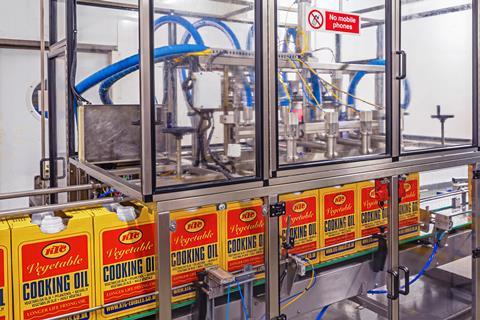
The firm implemented a switch to fully sustainable palm oil at Cardowan immediately after its acquisition. “Again, with the soya side, it’s buying from the right stakeholders that are doing the right thing for the environment and for the farmers in those countries,” Mehta adds.
In addition, recycled cardboard is used in all packaging, and plastic bottles of its products for retail are 30% RPET. There are also solar power panels at its head office, and combined heat and power solutions currently in discussion.
Big appointments
Endless has acted as a support mechanism and sounding bed for KTC, doing a lot of the heavy lifting during its recent acquisitions, and helping to recruit a whole new senior executive team.

This includes the appointment of Mark Ward as chief financial officer, who brings a vast amount of industry knowledge to KTC following a successful career at ABF. There’s also the new chief operating officer Phil Wells, who has decades of experience in operations – he comes with “fresh eyes around efficiencies and health and safety”.
New chief commercial officer Grant Ferrier has joined more recently from fresh produce suppliers A. H. Worth, helping to achieve the commercial strategy across the group, while IT director Pete Harvey and HR director Phil Hill have also been recruited.
Backed by an investment firm worth over £8.8bn on paper and a highly experienced executive team, KTC appears to be on the right track for further dominance of the edibles oils and fats industry including supplying the baking sector.



















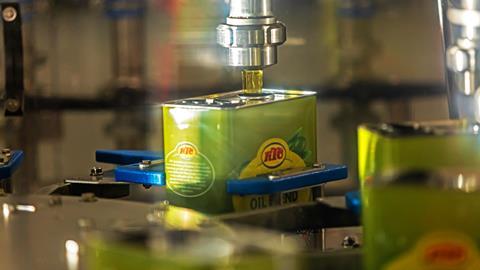
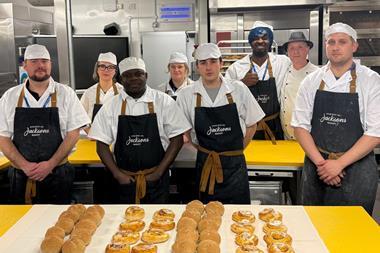




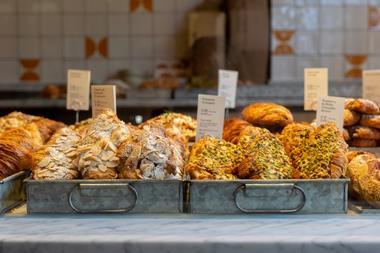

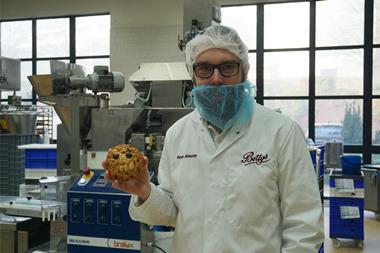

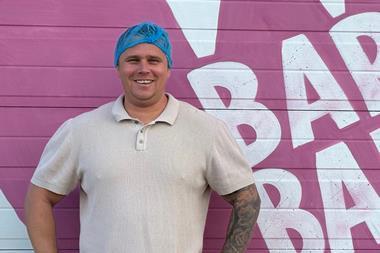
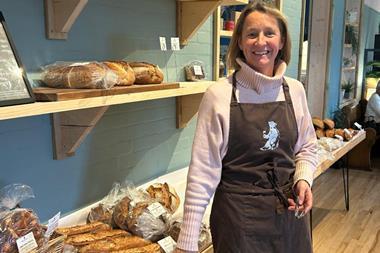


No comments yet